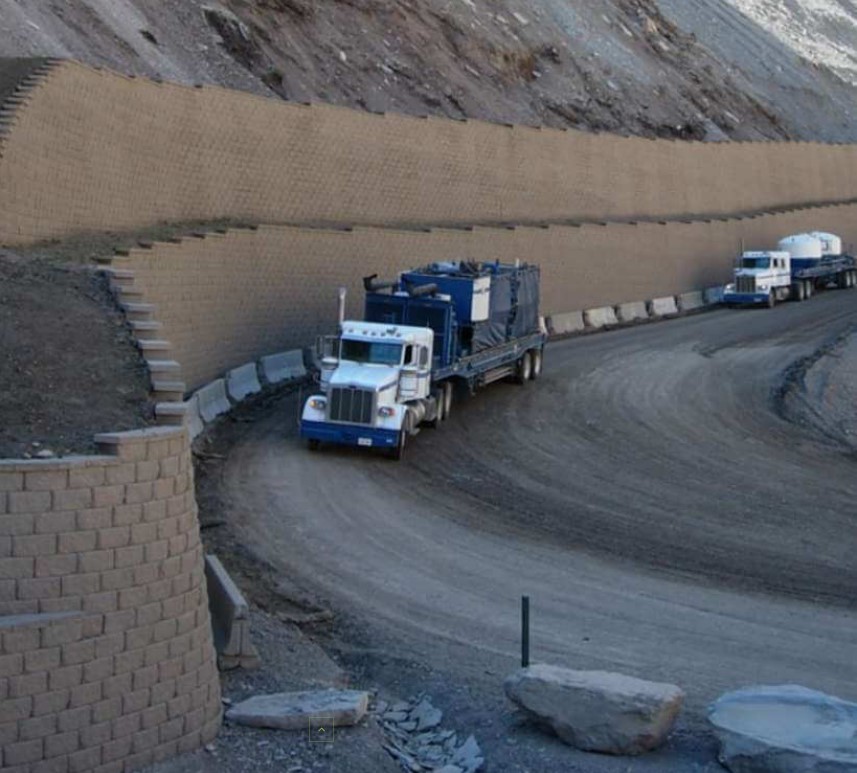What is wall retention: definition, types and importance in civil engineering Wall retention, another way of referring to retaining walls, is a structure that holds the soil behind it, and contains it. It can be made of different materials and reinforced using geosynthetics.. These structures are crucial for managing earth pressure across a variety of… Continue reading Wall retention
Category: Glossary Term
Glossary Term
Uniaxial geogrid
What is uniaxial geogrid? Uniaxial geogrids are a kind of geosynthetic material having reinforcing ribs that are mostly oriented in one direction. They have extra strength and stiffness in this particular direction, which makes them very useful for numerous soil reinforcement purposes. These grids can be manufactured from materials like Polyethylene geogrid or, most commonly… Continue reading Uniaxial geogrid
Thermal cracking
What is thermal cracking: its definition, types and causes Thermal cracking is the formation of cracks in concrete and asphalt structures due to temperature fluctuations that induce expansion and contraction of materials. This phenomenon compromises the structural integrity of infrastructure, leading to costly repairs and safety concerns. Thermal cracks are not limited to mass concrete… Continue reading Thermal cracking
Tensile strength
What is tensile strength? Tensile strength is the greatest tensile stress that a material can carry before breaking or fracturing. In other words, tensile strength is the ability of a material to resist pulling apart under tension. Its importance in civil engineering and materials science lies in that it determines how a material behaves when… Continue reading Tensile strength
T blocks
What are T blocks? One of the most important materials in construction is concrete blocks. Civil engineers use concrete block in construction primarily in walls and fences. There are several types of concrete blocks based on their properties but we will be learning about T blocks in this article. T blocks have derived their name… Continue reading T blocks
Specific gravity
Specific gravity is a fundamental property that provides insights into the physical properties like porosity and moisture content of materials used in construction, such as soil, aggregates, and cement. This plays a key role in material selection and structural design. Specific gravity: definition, methods and significance Specific gravity is a dimensionless quantity defined as the… Continue reading Specific gravity
Solid waste management
In recent years, solid waste management has arisen as a major environmental challenge. Because of the tremendous development in industry and population, the amount of garbage created around the world is staggering. Discarded wastes when not treated properly cause clogging and more complex challenges for humankind. Thus effective implementation of solid waste management plays a… Continue reading Solid waste management
Soil types
Introduction Natural resources play an immense role in every sphere of life. One of the most essential natural resources you need to know about is soil. The word soil has a Latin origin and is derived from the word “solum” which means ground. There is not one fixed definition of soil but in simpler terms,… Continue reading Soil types
Soil stabilization
What is meant by soil stabilization? Soil stabilization involves enhancing the physical characteristics of soil that give it its strength, durability, and bearing capacity. It is the necessary foundation for most residential developments to be built. These activities are meant to alter the features of soil to improve its performance as an engineering material. Importance… Continue reading Soil stabilization
Soil shear strength testing
In all civil engineering projects soil shear strength plays an imperative role as it helps to ascertain the ability of soil to resist deformation under enormous amounts of stress. Soil shear strength is a fundamental property that decides the design and safety of building projects like slopes, embankments, retaining walls, etc by knowing the soil… Continue reading Soil shear strength testing


